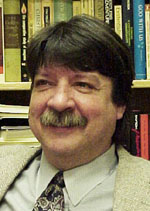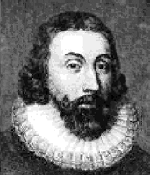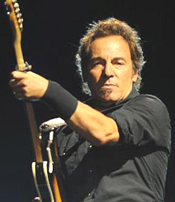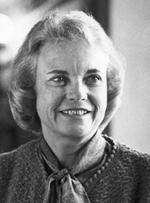Notes on civil religion
Definitions
‘Sacred character’
 “American civil religion is a form of devotion, outlook and commitment that deeply and widely binds the citizens of the nation together with ideas they possess and express about the sacred nature, the sacred ideals, the sacred character, and sacred meanings of their country. Civil religion is the mysterious way that religion, politics, ideas of nationhood, patriotism, etc. – energized by faith outlooks – represent a national force.”
“American civil religion is a form of devotion, outlook and commitment that deeply and widely binds the citizens of the nation together with ideas they possess and express about the sacred nature, the sacred ideals, the sacred character, and sacred meanings of their country. Civil religion is the mysterious way that religion, politics, ideas of nationhood, patriotism, etc. – energized by faith outlooks – represent a national force.”
—Rowland A. Sherrill, Professor of Religious Studies, Indiana University-Purdue University
‘American experience in light of universal reality
“American civil religion is concerned that America be a society as perfectly in accord with the will of God as men can make it, and a light to all the nations. ... American civil religion is not the worship of the American nation but an understanding of the American experience in the light of ultimate and universal reality. Civil religion at its best is a genuine apprehension of universal and transcendent religious reality as seen in or, one could almost say, as revealed through the experience of the American people.”
— Robert Bellah, “Civil Religion in America,” 1967
Derivations and variations
‘Light of the world’
“Ye are the light of the world. A city that is set on a hill cannot be hid.” — Matthew 5:14
‘City upon a hill’
 “For we must consider that we shall be as a city upon a hill. The eyes of all people are upon us. So that if we shall deal falsely with our God in this work we have undertaken, and so cause Him to withdraw His present help from us, we shall be made a story and a by-word through the world.”
“For we must consider that we shall be as a city upon a hill. The eyes of all people are upon us. So that if we shall deal falsely with our God in this work we have undertaken, and so cause Him to withdraw His present help from us, we shall be made a story and a by-word through the world.”
— John Winthrop, “A Model of Christian Charity,” 1630
‘Shining city on a hill’
“I've spoken of the shining city all my political life, but I don't know if I ever quite communicated what I saw when I said it. But in my mind it was a tall proud city built on rocks stronger than oceans, wind-swept, God-blessed, and teeming with people of all kinds living in harmony and peace.”
— Ronald Reagan, Farewell Address to the Nation, Jan. 11, 1989
‘Shining beacon on a hill’
“This is the greatest country on Earth. But because of some of the mistakes that have been made ... I think we are going to have a lot of work to do in the next administration to restore that sense that America is that shining beacon on a hill.”
— Barack Obama, Oct. 14, 2008, in the first presidential debate with John McCain.
Civil War, civil rights and civil religion
Discerning divine providence
 “If we shall suppose that American slavery is one of those offenses which, in the providence of God, must needs come, but which, having continued through His appointed time, He now wills to remove, and that He gives to both North and South this terrible war as the woe due to those by whom the offense came, shall we discern therein any departure from those divine attributes which the believers in a living God always ascribe to Him? Fondly do we hope, fervently do we pray, that this mighty scourge of war may speedily pass away.”
“If we shall suppose that American slavery is one of those offenses which, in the providence of God, must needs come, but which, having continued through His appointed time, He now wills to remove, and that He gives to both North and South this terrible war as the woe due to those by whom the offense came, shall we discern therein any departure from those divine attributes which the believers in a living God always ascribe to Him? Fondly do we hope, fervently do we pray, that this mighty scourge of war may speedily pass away.”
— Abraham Lincoln, Second Inaugural Address, 1865
‘The true meaning of its creed’
“And so even though we face the difficulties of today and tomorrow, I still have a dream. It is a dream deeply rooted in the American dream. I have a dream that one day this nation will rise up and live out the true meaning of its creed: We hold these truths to be self-evident that all men are created equal.”
— Martin Luther King, August 28, 1963
‘Reliance on divine providence’
“We hold these truths to be self-evident, that all men are created equal, that they are endowed by their Creator with certain unalienable rights ... And for the support of this declaration, with a firm reliance on the protection of Divine Providence, we mutually pledge to each other our lives, our fortunes and our sacred honor.”
— Declaration of Independence, United States of America
Popular culture

Soul of a nation
“It is through the truthful exercising of the best of human qualities – respect for others, honesty about ourselves, faith in our ideals – that we come to life in God's eyes. It is how our soul, as a nation and as individuals, is revealed.”
— “Chords for Change” by Bruce Springsteen
‘With God on Our Side’
Bob Dylan's poignant critique of national chauvinism and American exceptionalism.
Ceremonial deism
Ceremonial deism is a form of civil religion that is expressed during formal public events, ceremonies; or it is written into national mottos and slogans. Ceremonial deism is a sub-form of civil religion, but not the whole of civil religion. Former Supreme Court Justice Sandra Day O'Connor defined ceremonial deism in the 2004 case, Elk Grove Unified School District v. Michael Newdow, which concerned the use of the phrase “under God” in the Pledge of Allegiance:
 “This category of ceremonial deism most clearly encompasses such things as the national motto (‘In God We Trust’), religious references in traditional patriotic songs such as the Star-Spangled Banner, and the words with which the Marshal of this Court opens each of its sessions (‘God save the United States and this honorable Court’). These references are not minor trespasses upon the Establishment Clause to which I turn a blind eye. Instead, their history, character, and context prevent them from being constitutional violations at all.”
“This category of ceremonial deism most clearly encompasses such things as the national motto (‘In God We Trust’), religious references in traditional patriotic songs such as the Star-Spangled Banner, and the words with which the Marshal of this Court opens each of its sessions (‘God save the United States and this honorable Court’). These references are not minor trespasses upon the Establishment Clause to which I turn a blind eye. Instead, their history, character, and context prevent them from being constitutional violations at all.”
Links
With ‘God on whose side?’
Rowland A. Sherrill follows the contours of civil religion in America.
Barack Obama and civil religion
Read more about how President Obama employs the language of civil religion in his rhetoric.
‘With God on our side?’
The University of Massachusetts Press book, Religious Liberty in America: The First Amendment in Historical and Contemporary Perspective by Bruce T. Murray, includes a chapter on civil religion – tracing this phenomena from colonial times right up to the 2008 presidential election campaign.
Civil religion in the news
Newsletters on civil religion
Reviews of Religious Liberty in America
“This book is a splendid presentation of the First Amendment, ‘with civil religion as a parallel theme’ — especially as presently related to so many issues in American political and religious life. Other books on these issues have been appearing of late, but none as clear and thorough as this one.”
— G.H. Shriver, Professor Emeritus, Georgia Southern University
“In chapter 3, Murray examines the difference between religion as commonly understood and what he calls ‘America’s civil religion,’ which he describes as ‘a belief system that binds the nation’s deepest-held values with transcendent meaning’ (p. 41). Civil religion, properly understood, gives Americans a chance to see transcendent reality through the experiences, both good and bad, of the American people. ... The chapter on civil religion should be required reading in every U.S. history and political science class.”
— Kurt Hohenstein, Director of Paralegal Program and Co-Director of Law & Society Program, Winona State University (from Humanities & Social Sciences, H-Law, November, 2010)
“Bruce Murray seeks to lay out historically and conceptually the issues behind the two religious liberty clauses in the First Amendment. In doing so, he introduces and traces such significant topics as the development of religious pluralism and its ironic counterpart, civil religion. Nowhere is there such a clear and concise explanation of the issues as Murray offers in this book.”
— Philip Goff, Professor of Religious Studies and Director of the Center for the Study of Religion and American Culture, Indiana University-Purdue University, Indianapolis.

